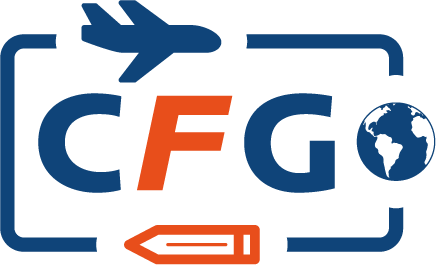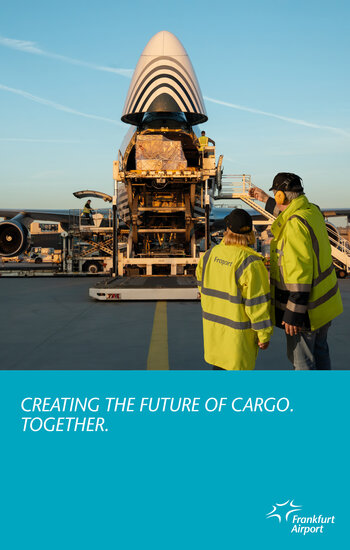At this year’s BUD Cargo Day, most speakers and panelists highlighted the phenomenal growth in cargo traffic at Budapest Airport (BUD). The remarkable upswing in volumes is the result of a very convincing cargo strategy, reasoned panelist, Michal Grochowski, Director Cargo at LOT Polish Airlines. It benefits the entire Hungarian economy and creates value, was the unanimous opinion among the 305 participants who attended the trade show.

Máté Lóga, State Secretary for Economic Development and Industry from Hungary’s Ministry for National Economy, also emphasized the driving force of the air freight sector in his opening statement. As evidence of value creation, the politician pointed to the growth in throughput reaching almost 200% over the past five years. Since Hungary is a relatively small market with only 10 million inhabitants, the airport has focused on becoming a bridge between China and Europe, and to some extent also to the U.S., M. Lóga stated. However, this upward trend is increasingly limited by tariffs and trade barriers. “Nowadays, a growing number of countries are imposing tariffs. This contrasts our policy since our government advocates free trade, an open economy, and liberal traffic solutions.”
Liberal air policy accelerates economic growth
The open sky policy has stimulated new investments and created many jobs, not only at the airport, which is celebrating its 75th anniversary this year, but also at companies that depend on reliable supply chains and have settled in or around Budapest. This applies above all to the machinery and IT industries, which are now very strongly represented in the region, emphasized Francois Berisot, CEO of BUD Airport, in his welcoming speech to the 300+ participants.
“Outstanding performance”
Among the participants was the outgoing TIACA Chair, Steven Polmans, whose leading role at the organization will be taken over by Ross Bakker at the beginning of 2026. Regarding air freight, Polmans said that he would like to clarify his keynote delivered at BUD Cargo Day in 2024, where he called Budapest a “rising hub”. Given the enormous growth in air freight volumes since then, BUD is now a “leading hub” offering its clients “outstanding performance”, he corrected.

In an online survey orchestrated by moderator, Brendan Sullivan, Global Head of Cargo, IATA, most participants said that speed and reliability are their top priorities when it comes to choosing an air freight capacity provider, followed by real-time tracking, seamless digital integration, state-of-the-art ground infrastructure and handling performance.
Space is becoming a rare commodity
The outcome of this vote sends a clear message to the BUD Cargo team, because when reaching a throughput of 450,000 tons, space becomes a rare commodity at the airport’s Cargo City. New, sustainable solutions are therefore needed to ensure the further growth of containers, pallets and parcels. This scenario could soon become a reality, as outlined by the Airport’s Cargo Chief, Jozsef Kossuth. By the end of August, 385,582 had been handled at BUD, which translates into a shipment value of one billion euros per month (sic!). Currently, more than 65 full freighters land at Liszt Ference Airport every week, accounting for 80% of the total volume handled there. This figure was supplemented by two further numbers tabled by Glyn Hughes, Director General of TIACA. According to him, global tourism generates USD 1.4 trillion annually. However, goods transported by air are worth USD 8 trillion. “Our industry should therefore be confident, because its contribution to the global economy has significantly reduced poverty over the past 15 years,” Glyn illustrated.
Stop whining, be more assertive
Markus Klaushofer, CCO BUD Cargo, urged the industry to communicate its achievements more offensively and to stop whining. “We need to show more self-confidence. In Europe, in particular, we still have a very strong industrial base that will remain indispensable to many markets. Once the EU and the Mercosur blocs have ratified their free trade zone agreement, the largest sustainable region on the planet will be born. This offers a multitude of new opportunities for trade and transport,” the manager emphasized.
However, another vote by the participants made it clear that volumes in Budapest will not skyrocket either. Most believe that growth will slow down in the coming years but will remain well above the EU average, driven mostly by e-commerce. They also estimate that the European economy will get a major push once Russia ends its war in Ukraine.
AI is a tool, not more
The future role of AI in air freight was another agenda topic in Budapest. In an online survey, most participants said that AI will help to solve operational issues, when integrated into supply chains. BUD’s Cargo boss, Jozsef Kossuth added that, as a tool, AI will help to analyze processes, be valuable for providing tailored customer support, and help accelerate the learning curve of employees, however, it will not replace human labor, he stated.
Moderator, Adrian Palangyi, Cargo Development Manager at Budapest Airport, addressed the topic of e-commerce. A survey showed that most attendees expect further growth in the parcel business over the next five years, but with a significantly flattened curve.
At the same time the e-commerce panel was taking place, the Nobel price committee in Stockholm decided that Hungarian writer, László Krasznahorkai, was to be awarded this year’s Nobel Prize for Literature. The result of this announcement was resounding applause.
Supply chain threats and no end in sight
However, two other decisions announced shortly after the BUD Cargo Day was over, are unlikely to have been consented by the Budapest attendees: U.S. President Trump’s tariff hike of 100% on Chinese imports to the U.S., which will be levied from 01NOV25. It a counter measure to China’s decision to impose far-reaching export restrictions on rare earths such as magnetic minerals. This export ban complicates Western efforts to establish their own value chains based on rare earths. Without these metals, no computer chip, smartphone, or electric car will be able to function. The impact of these two measures on international supply chains and thus also on cargo volumes, will become apparent shortly after their introduction – to the detriment of the global economy.




